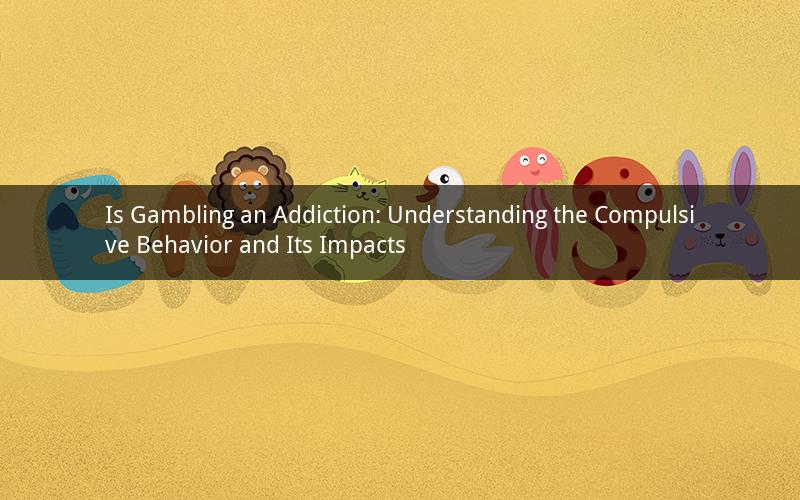
Introduction:
Gambling has been a popular form of entertainment for centuries. However, it has also been a source of controversy and debate. One of the most debated topics surrounding gambling is whether it can be classified as an addiction. This article aims to explore the concept of gambling addiction, its signs, causes, and the potential impacts it can have on individuals and society.
1. What is Gambling Addiction?
Gambling addiction, also known as compulsive gambling or problem gambling, is a behavioral disorder characterized by an inability to control or stop gambling despite negative consequences. It is a chronic condition that can affect individuals of all ages, genders, and socioeconomic backgrounds.
2. Signs of Gambling Addiction
Identifying gambling addiction can be challenging, as it often manifests in subtle ways. However, there are several signs that can help recognize if someone is struggling with a gambling addiction:
a. Preoccupation with gambling: Constantly thinking about gambling, planning the next gambling session, or reliving past gambling experiences.
b. Loss of control: Inability to stop gambling despite repeated attempts to do so.
c. Financial problems: Borrowing money, selling possessions, or engaging in illegal activities to fund gambling.
d. Relationship problems: Strained relationships with family and friends due to gambling-related issues.
e. Emotional and physical health issues: Experiencing anxiety, depression, insomnia, or other health problems as a result of gambling.
3. Causes of Gambling Addiction
Several factors can contribute to the development of a gambling addiction. These include:
a. Genetic predisposition: Research suggests that genetics may play a role in making some individuals more susceptible to developing a gambling addiction.
b. Environmental factors: Exposure to gambling opportunities, such as casinos or online gambling platforms, can increase the risk of developing an addiction.
c. Psychological factors: Individuals with certain personality traits, such as impulsivity or a need for excitement, may be more prone to developing a gambling addiction.
d. Social factors: Peer pressure, the desire to impress others, or the need for validation can contribute to the development of a gambling addiction.
4. Impacts of Gambling Addiction
Gambling addiction can have severe consequences for individuals and society as a whole. Some of the impacts include:
a. Financial loss: Individuals with gambling addiction often experience significant financial loss, leading to bankruptcy, foreclosure, or other financial hardships.
b. Emotional and mental health issues: Compulsive gambling can lead to depression, anxiety, and other mental health problems.
c. Relationship problems: Strained relationships with family and friends can result from the negative consequences of gambling addiction.
d. Legal issues: Individuals with gambling addiction may engage in illegal activities to fund their gambling habits, leading to legal problems.
e. Social and economic consequences: The ripple effects of gambling addiction can extend to the broader community, impacting local economies and social services.
5. Treatment and Support for Gambling Addiction
Treatment for gambling addiction involves a combination of therapeutic and self-help strategies. Some common treatment approaches include:
a. Cognitive-behavioral therapy (CBT): This type of therapy helps individuals identify and change negative thought patterns and behaviors associated with gambling.
b. Support groups: Joining a support group, such as Gamblers Anonymous, can provide individuals with a sense of community and shared experiences.
c. Medication: In some cases, medication may be prescribed to help manage symptoms of depression or anxiety associated with gambling addiction.
d. Financial counseling: Individuals with gambling addiction may benefit from financial counseling to help them regain control of their finances and develop a budget.
Frequently Asked Questions:
1. Q: Can gambling addiction be cured?
A: While there is no cure for gambling addiction, it can be effectively managed with appropriate treatment and support.
2. Q: Is online gambling more addictive than traditional gambling?
A: Online gambling can be more addictive due to its convenience and accessibility. The ease of access to online gambling platforms can make it harder for individuals to control their gambling habits.
3. Q: Can children develop gambling addiction?
A: Yes, children can develop gambling addiction. Early exposure to gambling and certain personality traits may increase the risk of developing an addiction.
4. Q: Is there a difference between a gambling problem and a gambling addiction?
A: Yes, a gambling problem refers to mild to moderate gambling-related issues, while a gambling addiction is a more severe and chronic condition.
5. Q: Can someone recover from a gambling addiction on their own?
A: While it is possible for some individuals to recover from a gambling addiction on their own, seeking professional help and support from treatment programs or support groups can significantly improve the chances of successful recovery.